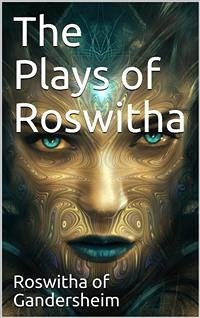Many modern female writers are famous for their voluptuous style; their ungratified sex is expressed in such erotic art activity. The nun Hroswitha of Gandersheim (C. 940—1002) was the first known woman dramatist in German literature. She shows an out-spoken, sadistic-masochistic bent in her dreams, in their ample description of lustful, cruel and degrading scenes. It is apparent that the conception and description of the happenings must have colored the author's emotional life. Her legend, The Passion and Martyrdom of St. Agnes the Virgin takes place partly in a bawdy-house; the passion play, St. Gongolf treats the theme of cuckoldry and brings in flatulence as a scatological theme; her play The Passion of St. Pelagus has the theme of pederasty. In the drama Dulcitus the three saintly virgins are to be publicly divested by Roman soldiers. In her Sapientia, Fides is whipped naked so that her limbs are rent asunder; the tormentors cut off her breasts, tie her to a red-hot grating and finally behead her. In other plays Hroswitha shows a great knowledge of the doings of the inmates of the brothels. In The Resurrection of Drusia her theme is necrophilism. We may assume that this literary nun expressed her pent-up sex, raising it to an excessive sadistic and masochistic degree. She thus appears as a female counterpart of de Sade, who during his long term in prison was to brood over and invent similar phantastic scenes without having experienced them in real life.
Bitte wählen Sie Ihr Anliegen aus.
Rechnungen
Retourenschein anfordern
Bestellstatus
Storno









